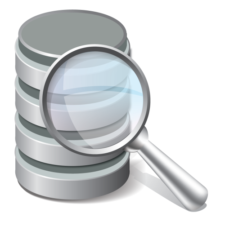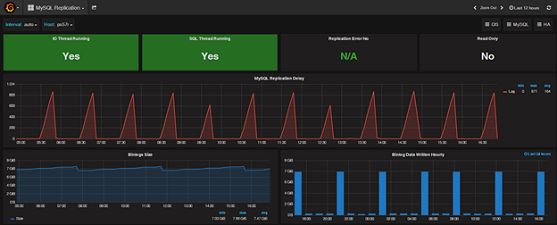
by Sveta Smirnova | Nov 18, 2016 | MongoDB
In this blog, I will provide answers to the Q & A for the WiredTiger B-Tree versus WiredTiger In-Memory webinar. First, I want to thank everybody for attending the October, 13 webinar. The recording and slides for the webinar are available here. Below is the list...

by Peter Zaitsev | Nov 17, 2016 | MongoDB, MySQL, Percona Events
Let us know what you think about Percona, and what we should be thinking about for the future. Over the last ten years, Percona has grown considerably. We’ve moved from being a strictly MySQL company, to a company that supports MongoDB and other open source...

by Jon Tobin | Nov 16, 2016 | Cloud, MongoDB, MySQL
This blog post reviews the appropriateness of Docker and other container solutions for your database environment. A few weeks back, I wrote a fairly high-level blog post about containers. It covered what you should consider when thinking about using Docker, rkt, LXC,...

by Alexey Zhebel | Nov 15, 2016 | MongoDB, MySQL, Percona Events, Percona Software, ProxySQL
Percona announces the release of Percona Monitoring and Management 1.0.6 on November 15, 2016. PMM Server is distributed through Docker Hub PMM Client packages are available on the download page The instructions for installing or upgrading Percona Monitoring and...

by Barrett Chambers | Nov 14, 2016 | MongoDB, MySQL
This blog post looks at MongoDB and MySQL, and covers high-level MongoDB strengths, weaknesses, features, and uses from the perspective of an SQL user. Delving into NoSQL coming from an exclusively SQL background can seem like a daunting task. I have worked with SQL...
by Kortney Runyan | Nov 8, 2016 | MariaDB, MongoDB, MySQL, Percona Live
We’ve extended the Percona Live Open Source Database Conference 2017 call for papers deadline until November 13th! If you haven’t submitted already, please consider doing so. Speaking at Percona Live is a great way to build your personal and company brands, and...

by Dave Avery | Oct 31, 2016 | MongoDB, Webinars
Please join us on Wednesday, November 2, 2016 at 10:00 am PDT / 1:00pm EDT (UTC-7) for the webinar MongoDB Backups, All Grown Up, featuring David Murphy, Percona’s Mongo Practice Manager. It has been a long road to stable and dependable backups in the MongoDB...

by Kortney Runyan | Oct 26, 2016 | MongoDB, MySQL, Percona Live
The Percona Live Open Source Database Conference 2017 call for papers is closing soon! Get in your submissions ASAP! After this past sold-out Percona Live Europe in Amsterdam, we’ve decided that expansion definitely works! The diverse list of topics at the...

by Peter Zaitsev | Oct 19, 2016 | MongoDB, Monitoring, MySQL, Percona Software
As part of the release of Percona Monitoring and Management, we set up an extensive online Percona Monitoring and Management demo at pmmdemo.percona.com. The demo is pretty self-explanatory and easy to explore, but you will probably find it a lot more interesting with...

by Dave Avery | Oct 10, 2016 | Cloud, Insight for DBAs, MariaDB, MongoDB, Monitoring, MySQL
Take Percona’s One-Click 2017 Top Database Concerns Poll. With 2017 coming quick around the corner, it’s time to start thinking about what next year is going to bring to the open source database community. We just finished Percona Live Europe 2017, and at the...

by Dave Avery | Oct 5, 2016 | MongoDB, Percona Live
Lots of talks and presentations going on at the Percona Live Europe Open Source Database Conference 2016 on day two! Today is just as packed as yesterday, and we were able to attend some more of the talks. MongoDB has had an increasing presence at Percona Live Europe,...

by Dave Avery | Oct 3, 2016 | MongoDB, Percona Live
The first day of the Percona Live Europe Open Source Database Conference in Amsterdam is moving right along. The tutorials today have been well-attended, and contain a great deal of useful information. One of the more popular tutorials was on MongoDB 101, Part...

by Dave Avery | Sep 28, 2016 | MongoDB, Percona Live
Welcome to another Percona Live Europe featured talk with Percona Live Europe 2016: Amsterdam speakers! In this series of blogs, we’ll highlight some of the speakers that will be at this year’s conference. We’ll also discuss the technologies and outlooks of the...

by Dave Avery | Sep 26, 2016 | Webinars
Please join Percona founder and CEO Peter Zaitsev for a webinar Wednesday, September 28 at 11 am PDT (UTC-7) where he’ll discuss Percona Software News and Roadmap Update – Q3 2016. Come and listen to Percona CEO Peter Zaitsev discuss what’s new in Percona...
by Kortney Runyan | Sep 22, 2016 | MySQL
The Call for Speakers for Percona Live Open Source Database Conference 2017 is open and accepting proposals through Oct. 31, 2016. The Percona Live Open Source Database Conference 2017 is the premier event for the diverse and active open source community, as well as...

by David Murphy | Sep 20, 2016 | MongoDB
In this blog post, we’ll look at MongoDB point-in-time backups, and work with them. Mongodump Mongodump is the base logical backup tool included with MongoDB. It takes a full BSON copy of database/collections, and optionally includes a log of changes during the...

by Bob Davis | Sep 13, 2016 | MongoDB, MySQL, Percona Software
Percona announces the availability of Percona Monitoring and Management (PMM), an open source software database monitoring and management tool. Completely open source and free to download and use, Percona Monitoring and Management provides point-in-time visibility and...

by Dave Avery | Aug 30, 2016 | MongoDB, Security, Webinars
Please join David Murphy as he presents a webinar Thursday, September 1 at 10 am PDT (UTC-7) on MongoDB Security: A Practical Approach. (Date changed*) This webinar will discuss the many features and options available in the MongoDB community to help secure your...

by Tim Vaillancourt | Aug 12, 2016 | MongoDB
In this post, we’ll discuss tuning Linux for MongoDB deployments. By far the most common operating system you’ll see MongoDB running on is Linux 2.6 and 3.x. Linux flavors such as CentOS and Debian do a fantastic job of being a stable, general-purpose...

by Denis Protivenskii | Aug 11, 2016 | Benchmarks, MongoDB
This post discusses Percona Server for MongoDB’s new in-memory storage engine, Percona Memory Engine for MongoDB. Percona Server for MongoDB introduced the Memory Engine starting with the 3.2.8-2.0 version. To use it, run Percona Server for MongoDB with the...


















